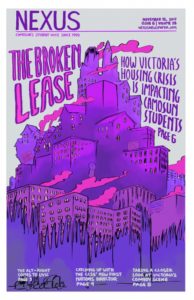In an argument, a participant puts forward evidence as proof of their point. In theory. Today, many arguments are made poorly, appearing as a Swiss cheese of logical fallacies. Some, like an ad hominem argument—aimed to discredit the arguer and not their points—are put forward maliciously in an attempt to win the argument through chicanery, but, often, a person isn’t fully aware of what they are doing.
Anecdotal evidence is “proof” that someone is right, despite little or proper research. It’s usually used to suggest that because the arguer has observed something, that something exists pervasively throughout a population. For example: “Can smoking really be that bad? My father’s smoked two packs every day for 30 years and he’s fit as a fiddle.”

It may seem obvious that this is not a good argument, but the unfortunate truth is that not only is it widely used, but also it’s often respected and unchallenged. The 45th president of the United States has a habit of using this particular fallacy; many politically biased media outlets—on both sides—seem to believe that there is nothing wrong with publishing this sort of “proof.”
Unfortunately, anecdotal evidence isn’t always wrong. Some observations are very astute, despite the scope of their study; some observations, by happenstance, fall within what has generally been accepted. This is dangerous, as it reinforces the perpetrator’s belief that this sort of logic produces solid ideas.
Ultimately, it is easy to fall prey to such a clever predator; after all, we are entities of the flesh, slaves to our own senses. Who can you believe if you can’t believe your own eyes? But this is why research and the expansion of horizons are so important. The expansion of a person’s knowledge base means not only that they are more likely to have an opinion that is backed up by fact, but also that they will be able to recognize when they are wrong.
One of the most dangerous pieces of this problem is that the purveyors of this type of evidence do routinely believe that what they are saying is true. Their self-centric worldview is so dominant that it fails to acknowledge the uniqueness of their own circumstance and the fact that the situation outside their protective halo is not always equivalent to their own.
A particularly vexing example for me is that people who are well off have a tendency to make the argument that because they worked hard to get where they are, or because they started from the bottom, that’s possible for everyone. This excuse is used to deny the needy access to resources that could have a grand impact on their quality of life. In fact, a lot of these arguments take the form of “Well, I can do it, so they should be able to.” To expect that all people are equally capable despite differences in resources perpetuates, among other things, sexism, ableism, and racism.
The burden of correcting this ignorance falls on all of us, the parents, teachers, friends, and children… anyone who has a possibility of educating those who fall victim to their own misguided belief. People are naturally averse to criticism; they will, inevitably, get defensive if they are told that they’re wrong, but if you’re able to break through their walls and enlighten them they will live a more genuine existence, and we will be one step closer to equality, and one step closer to justice.
